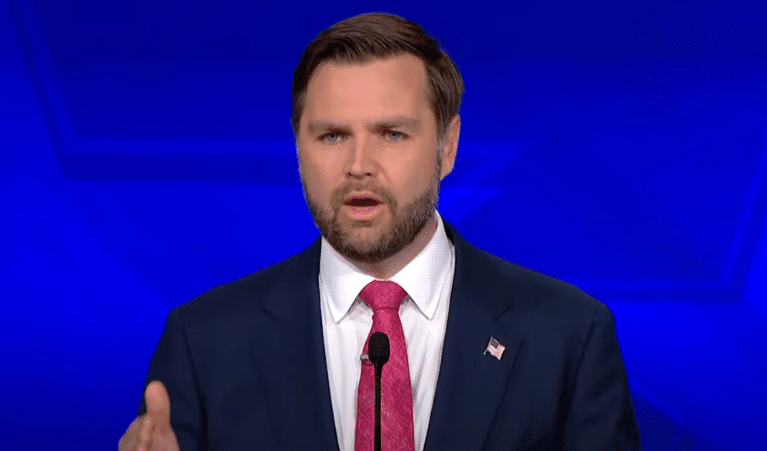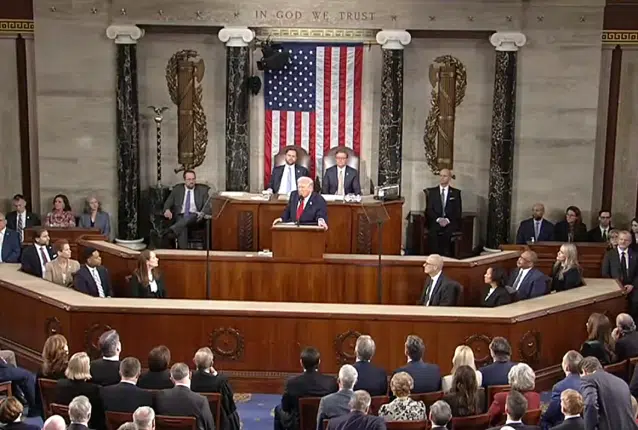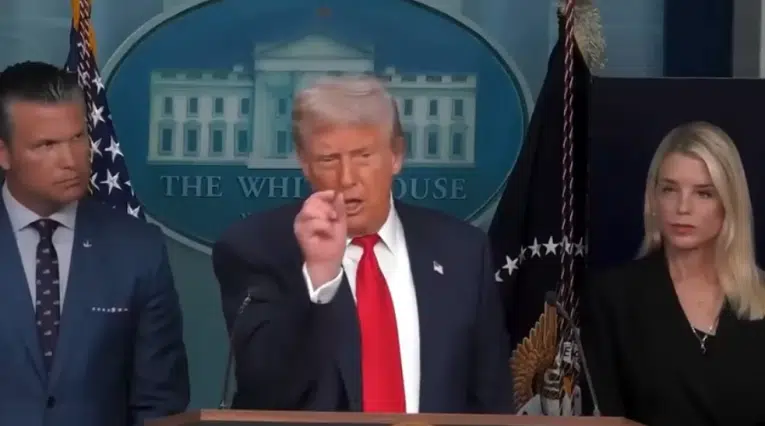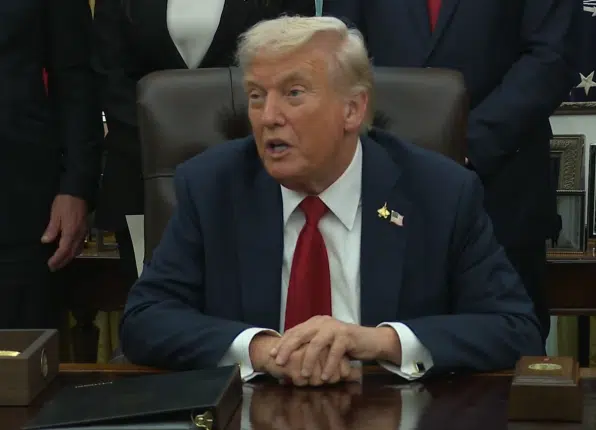
“We don’t want to blame immigrants for higher housing prices. But we do want to blame Kamala Harris for letting in millions of illegal aliens into this country… which does drive up costs, Tim. Twenty-five million illegal aliens competing with Americans for scarce homes is one of the most significant drivers of home prices in the country. It’s why we have massive increases in home prices that have happened right alongside massive increases in illegal alien, alien populations under Kamala Harris’s leadership.”
That was Ohio Republican Sen. J.D. Vance at his Oct. 1 debate against Minnesota Democratic Gov. Tim Walz, outlining that allowing 8.3 million border crossings since 2021 reported by the U.S. Customs and Border Patrol, most of whom tend to stay, thus requiring housing, increases demand and thus prices for existing homes.
For example, in Fiscal Year 2024, of the 2.75 million southwest border encounters, 1.4 million were Title 8 apprehensions, of which only about 309,000 were subjected to expedited removal, about 109,000 were detained pending proceedings and another 139,000 voluntarily returned, with almost all of the rest given a voluntary “notice to appear” for later immigration proceedings. The rest were just caught and released. In other words, about 2.2 million stayed. Where?
In the nation’s increasingly scarce housing. Now, do that every year, and you wind up with millions more demanding housing, and if production does not keep up—it hasn’t—and prices have only one place to go, up. At the debate, Vance noted “there’s a Federal Reserve study that we’re happy to share after the debate. We’ll put it up on social media. Actually, that really drills down on the connection between increased levels of migration, especially illegal immigration, and higher housing prices.”
True to his word, on Oct. 2, Vance posted on X a speech by Federal Reserve Governor Michelle Bowman from May 3 at the Massachusetts Bankers Association Annual Convention in Key Biscayne, Fla., when she stated, “there is a risk that strong consumer demand for services, increased immigration, and continued labor market tightness could lead to persistently high core services inflation. Given the current low inventory of affordable housing, the inflow of new immigrants to some geographic areas could result in upward pressure on rents, as additional housing supply may take time to materialize.”
Since 2020, the U.S. population has increased by almost 5.7 million to 337 million on a net basis once births, deaths and immigration are factored in, according to the U.S. Census Bureau. That means illegal immigration of 8.3 million reported by the Border Patrol — again, most of them stay — more than accounts for the entire overall increase of the population.
Even still, from 2021 to 2024, there have been about 5.8 million housing starts for private homes, according to the Department of Housing and Urban Development. That’s enough homes for every person, let alone every household — the average size of American households is 2 when households are divided by population level.
So, construction has more than kept up with the growth of the population, although there are regional incongruities. One-third of illegal immigrants live in California and Texas alone, with Florida, New York, New Jersey and Illinois included accounts for more than half of the inflow, according to Pew Research.
And according to Zillow, about half of the worst housing shortages are in Californian cities alone, while the biggest increases in housing supply were occurring in Austin, Seattle, Orlando, Jacksonville, Dallas, Houston, San Antonio, Raleigh, Nashville, and Phoenix. Texas builds more homes, and so prices there are less than California.
Overall, since the end of 2020, the U.S. Freddie Mac Home Price Index has increased 37.2 percent. The all transactions house price index by Federal Housing Finance Agency says they’re up 44 percent. And housing in the consumer price index is up 22.7 percent, and overall shelter prices are up 22.8 percent.
It is in that context that Kamala Harris is proposing to build an additional 3 million homes over the next four years, in addition to the current 1.3 million a year already being constructed. Or we could just deport the illegal immigrants, as proposed by former President Donald Trump, and then there is no shortage.
Also, and this is sad to think about, but as Baby Boomers age and pass away — there are 60 million Americans 65 years old and older — the number of available housing units will grow dramatically over the next 15 years. The same thing is happening in Japan, where once there were housing shortages, but because of the aging population, there are surpluses as prices collapse.
Meaning, just as soon as we get done building a bunch of new homes to accommodate all of the immigration, we could see home prices contract as happened in 2007 through 2011. At best, there are temporary shortages that could be almost entirely mitigated by restricting migration. Senator Vance was right.
Robert Romano is the Vice President of Public Policy at Americans for Limited Government Foundation.






